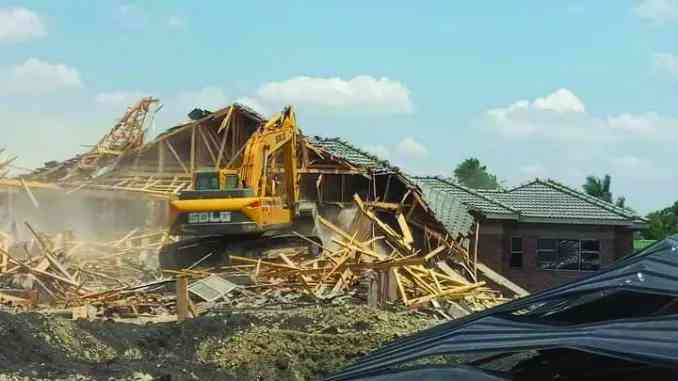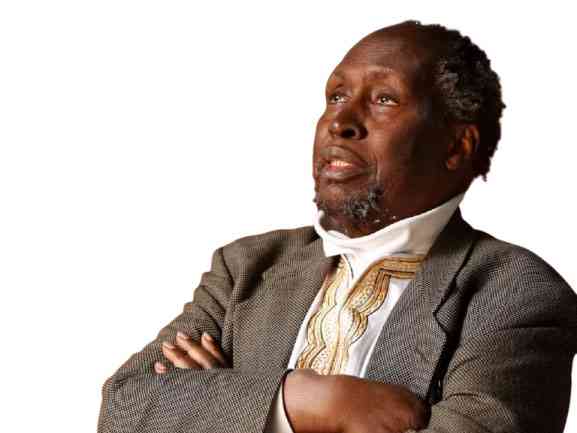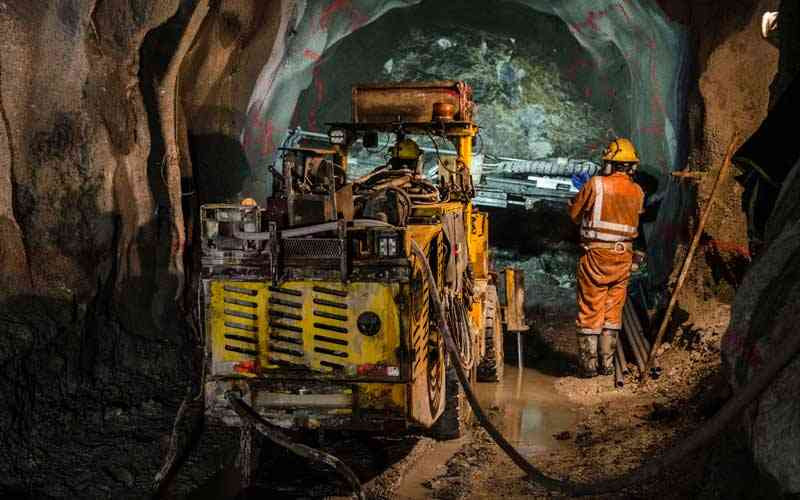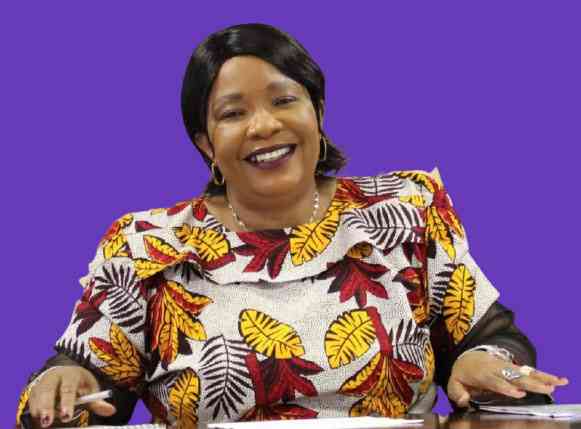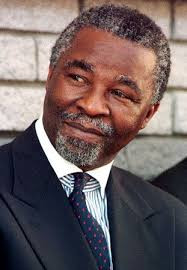
THE mood of bitterness is escalating across the political divide in Zimbabwe. The situation in the country is not getting any better.
Zimbabwe is grappling with intertwined political and economic crises that mirror the turmoil preceding the 2008 government of national unity (GNU).
The country’s current state marked by economic volatility, political fragmentation and social decay is a signal that it is ripe for a constructive transitional national dialogue.
Just as in 2008, is another Thabo Mbeki needed to steer “political” conversations towards a new governance framework, akin to the GNU?
Two critical drivers of this state of affairs are: economic mismanagement arising from corruption and leadership incompetence, and bad governance arising from a political leadership crisis across political parties, coupled with entrenched political polarisation.
At present, the country’s economy has deteriorated sharply since the end of the GNU in 2013.
The decommissioned RTGS currency lost 82% of its value in early 2024, followed by the new ZiG currency which depreciated by 47% in the third quarter of 2024.
Annual inflation remains astronomically elevated at 85,7%, despite a marginal monthly decline to 0,6%.
- Why gender parity is important in foreign policy
- Letter from America: Mbeki: A lesson from South Africa
- Letter from America: Mbeki-2: Lessons from South Africa
- Zim ripe for dialogue: Is another Mbeki needed?
Keep Reading
Despite a positive growth forecast of 6% in 2025, up from 2% in 2024, this optimism is likely to be negatively impacted by systematic corruption.
Zimbabwe ranks 158th out of 180 countries in the 2024 Corruption Perceptions Index, ninth among top 10 corrupt African countries and the worst in the Sadc region, ahead of the conflict-inflicted Democratic Republic of Congo.
This rating is an indictment of the country’s anti-corruption efforts. Agriculture, the country’s economic cornerstone is held hostage by climate shocks including the 2024 El Niño-induced drought.
The formal economic sector is struggling under regulatory burdens, pushing economic activities into the informal space.
On the contrary, during the GNU era (2009-2013), dollarisation stabilised inflation below 5%, and averaged GDP growth at 9% annually. Revenues increased from 16% in 2009 to 36% of GDP by 2012.
These were driven by reforms in tax collection and fiscal discipline, which lacks in the current national purse managers.
The current landscape, however, reflects a reversal of these gains, underscoring the link between political stability and economic performance.
The political environment, also, is characterised by political fragmentation, deepening polarisation, public distrust and governance failures.
Factionalism within Zanu PF is intensifying, with President Emmerson Mnangagwa’s loyalists asking him to extend his term of office beyond 2028, while the likes of Blessed Geza, a war veteran and former ruling party member, are demanding his resignation over alleged corruption, incompetence and mental incapacity.
The main opposition party, Citizens Coalition for Change (CCC) has been weakened by internal divisions and asserted State-sponsored legal challenges, leaving Parliament dominated by Zanu PF.
The Judiciary and Executive are widely perceived as aligned to the ruling party, undermining checks and balances and the citizenry’s capacity to demand public accountability and transparency.
The enactment of the Private Voluntary Organisation Act has further stifled civil society and curtailed advocacy and accountability efforts.
To cure this deteriorating national context, Zanu PF reformists, some sections of the opposition and citizens have selectively called for the president’s impeachment, while intellectuals and activists fronted by Ibbo Mandaza have called for a national transitional authority.
Challenges associated with these propositions are that: firstly, impeaching the seating president without a dialogue about the nature and structure of the incoming leadership will return Zimbabwe to the post-2017 coup experiences.
Secondly, a national transitional authority will require a robust national dialogue to avoid elite power fortification at the expense of democratic consolidation.
The 2008 GNU mediated by Mbeki, then president of South Africa, provides critical insights into how a national dialogue can be designed and its benefits in bringing political stability and economic recovery, which Zimbabwe desperately needs at present.
The Mbeki-facilitated dialogue between major political parties ZanuPF and MDC formations established a coalition government (GNU), halted political violence, stabilised the economy and initiated constitutional reforms.
Sadc and the African Union backed the dialogue process, ensuring credibility and public trust.
The political dialogue did not completely resolve the country’s political problems, but it was partially inclusive as it allowed civil society participation in constitutional reforms, hence fostering some degree of ownership and legitimacy.
However, the 2018 political dialogue — Political Actors Dialogue (Polad) — failed by any measure compared to the GNU due to structural flaws.
Only the ruling Zanu PF party and fringe opposition parties instituted Polad.
Key stakeholders were alienated such that the main opposition CCC boycotted Polad, citing bias in facilitation by State-aligned bodies like the National Peace and Reconciliation Commission (NPRC).
The CCC favoured a neutral (external) facilitator. A conversation with the Lead president Linda Masarira revealed that she was the brains behind Polad, but was kicked out of the process and the participating fringe parties were without a shared agenda, enabling Zanu PF to dominate the dialogue platform.
Hence, Polad became a platform for power fortification rather than democratic consolidation.
Although informal dialogue initiatives led by churches — such as the Zimbabwe Council of Churches and by political groups including the National Elections Reform Agenda and National Democratic Working Group — have not attracted widespread national attention, they continue to play an important role in sustaining and enriching Zimbabwe’s broader dialogue processes.
A successful national dialogue model must address pitfalls of the past dialogues — GNU and Polad — by ensuring inclusive participation and that the dialogue is facilitated by neutral person(s) trusted by all parties.
All stakeholders including political parties, workers unions, vendors, students, churches, business groups and various sectoral groups must be engaged to ensure broad representation and participation.
Drawing from the GNU experience, appointing a neutral mediator — accepted by all — to oversee negotiations is essential.
The dialogue process must begin with mutual intra- and inter-party dialogues to ensure political cohesion within and across parties.
These should happen concurrently with various sectoral dialogues, by diverse stakeholders, leading to a national convention that will have structured agendas to ensure prioritisation of actionable outcomes.
Key national dialoguing issues can focus on political reforms (parliamentary revitalisation, electoral integrity, and judicial independence), economic recovery (currency stabilisation, anti-corruption measures and agricultural revival) and social recovery (access to education, food security and healing and reconciliation).
The media and civic spaces must be liberalised to increase access to information and civic participation.
These issues must be guided by national objectives established in Chapter 2 of the country’s Constitution.
Zimbabwe’s trajectory is centred on its willingness to embrace dialogue and by centring inclusivity Zimbabwe can forge a path toward sustainable governance and shared prosperity.
Lessons from the GNU demonstrates that dialogues can foster political cohesion and catalyse economic recovery while sustained progress requires deeper structural reforms.
*Dr Edknowledge Mandikwaza is a peace, mediation and development specialist and a postdoctoral researcher at the Centre for Mediation in Africa, University of Pretoria.
These weekly articles published are coordinated by LovemoreKadenge, an independent consultant, managing consultant of Zawale Consultant (Private) Limited, past president of the Zimbabwe Economics Society, past president of the Chartered Government & Accountancy Institute in Zimbabwe. Email – kadenge.zes@gmail.com or Mobile No. +263 772 382 852

